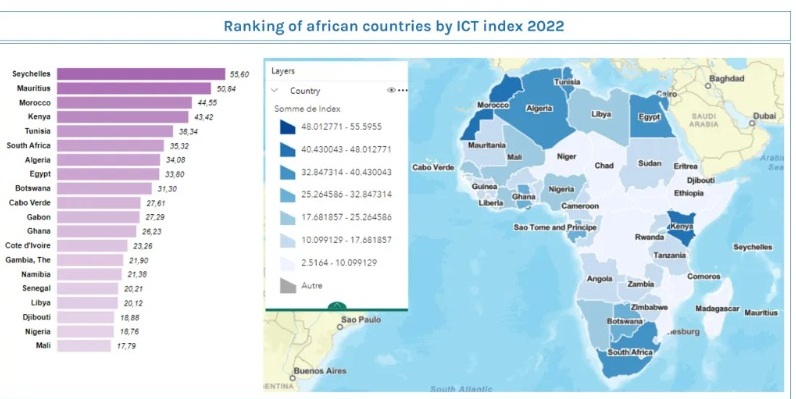
Understanding the diverse state of telecommunication infrastructure in African countries is vital for gaining insights into this dynamic continent. While some African nations boast advanced telecom networks and thriving industries, others present untapped potential and room for growth. Amidst the swift progress in telecom infrastructure across the continent, Africa is poised to provide a spectrum of investment opportunities, acting as a catalyst for business expansion across diverse sectors.
For example, with ongoing enhancements in telecom infrastructure across Africa, the continent is positioned for potential e-commerce expansion. These advancements are expected to empower businesses to access broader audiences, facilitate secure online transactions, and improve shopping experiences. As a result, investment opportunities could arise in areas such as logistics, payment gateways, and tailored digital marketing strategies for African markets.
Another example is the Fintech sector, the evolution of Africa’s telecom infrastructure may drive the growth of this sector. The improved connectivity is likely to facilitate the emergence of innovative fintech solutions, especially those leveraging mobile and digital technologies. Potential advancements in mobile money services could enhance financial inclusion and access to financial services, potentially attracting investor interest in supporting fintech startups targeting specific financial challenges in African markets.
Now that we understand how the development of ICT infrastructure can positively impact other sectors, let’s delve into Africa’s telecom landscape. We will put into perspective the ICT index issued by the African Development Bank, which reveals the varying levels of technological advancement across African countries.
The ICT composite index
The Information and Communication Technology (ICT) Index is a measure aimed at assessing the technological and communication infrastructure in African nations. Part of a broader evaluation framework the “AIDI index” which focuses on the overall infrastructure development of the countries, this index specifically examines aspects of ICT development by considering factors such as internet accessibility and telecommunication networks.
When paired with broader contextual factors, such as a country’s development strategies and tangible achievements in the field, this index can provide valuable insights into the state of ICT infrastructure. By considering multiple perspectives, it becomes a valuable tool for understanding the technology landscape. It’s important to acknowledge that no single metric offers a complete picture, and combining various indicators while putting them into context can lead to a more comprehensive understanding. And that’s our plan—to compare the numbers with what these African countries have actually achieved.
The ICT index focuses on 4 key indicators:
1. Total Phone Subscriptions (per 100 inhabitants): Evaluates the penetration and accessibility of telephone services, both fixed and mobile, within the country.
2. Number of Internet Users (per 100 inhabitants): Measures the level of internet usage and access among the population.
3. Fixed (Wired) Broadband Internet Subscribers (per 100 inhabitants): Assesses the adoption of fixed (wired) broadband internet services.
4. International Internet Bandwidth (Mbps): Measures the available bandwidth for data transmission between the country and the rest of the world.
The AIDI combines these ICT indicators along with other infrastructure-related indicators to provide an overall score that reflects the level of infrastructure development in each African country. It serves as a valuable tool for policymakers, investors, and development agencies to understand the overall infrastructure landscape, including the ICT sector, and identify areas that require improvement or investment to promote economic growth and development.
Please note that the specific indicators and weightage assigned to each component within the AIDI may vary based on the methodology and updates by the African Development Bank.
Below is a comprehensive overview of where each African nations sits in regards to ICT infrastructure development during 2022. (source: African Development Bank)

